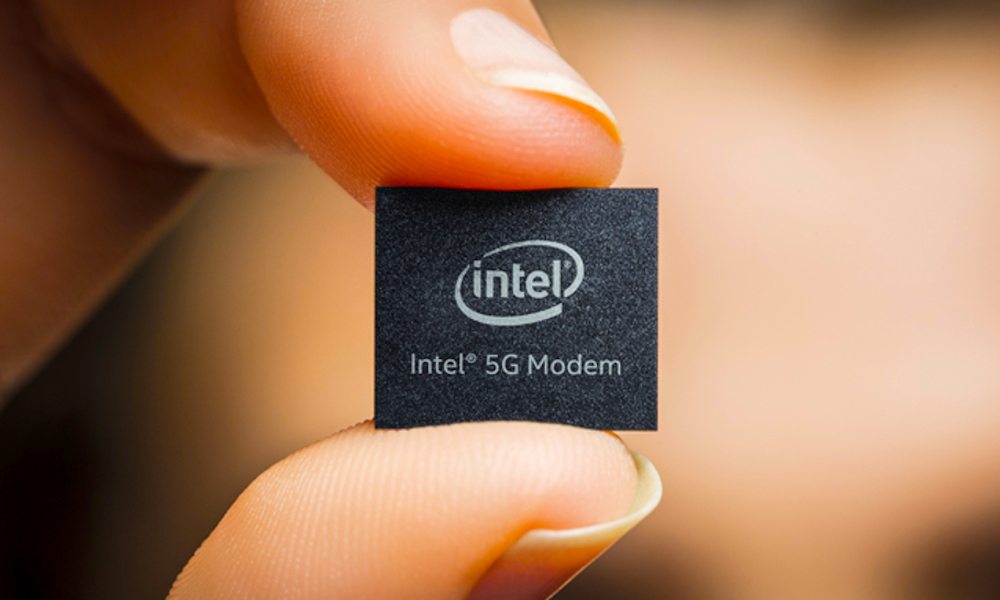Intel Left Mobile 5G Due to Apple-Qualcomm Truce, But 2019 iPhones Will Still Use Intel’s 4G Chips
 Credit: Intel
Credit: Intel
Toggle Dark Mode
Earlier this month, Apple shocked many industry watchers when it suddenly settled its multi-year legal battle with Qualcomm, however, just as people were catching their breath, there came another surprise only hours later from Intel declaring that it was throwing in the towel on 5G smartphone chips. The timing of the announcements led many to wonder which actually came first; did Apple settle with Qualcomm because it knew Intel was about to announce its exit, or did Intel give up as a result of basically losing one of its biggest customers?
Although Apple’s reasons for settling with Qualcomm still undoubtedly had to do with a loss of confidence in Intel — after all, it wasn’t a surprise that Intel was struggling to produce reliable 5G modem chips that could meet Apple’s requirements — in an interview with the Wall Street Journal, Intel CEO Bob Swan has now clarified that his company only made the decision to exit the 5G smartphone modem business entirely after Apple announced its deal with Qualcomm.
In light of the announcement of Apple and Qualcomm, we assessed the prospects for us to make money while delivering this technology for smartphones and concluded at the time that we just didn’t see a path.
Bob Swan, CEO, Intel
No doubt the official loss of Apple’s confidence was a massive blow to Intel — for Apple to make peace with Qualcomm, which had become an arch rival, would have been a pretty sure sign of the end of any hopes that would allow the beleaguered chip maker to make a go of its 5G modem chip efforts. Despite this, however, Intel’s decision actually may not be as extreme as it sounds. The company has not chosen to exit 5G modem technology entirely, it’s merely given up on its efforts to make modem chips for smartphones; instead Intel will continue to develop 5G technology for non-smartphone devices, many of which don’t have the demanding size and power requirements that make putting the technology into smartphones such a challenge.
Further, even when it made the announcement, Intel underscored that it would be continuing to meet all of its commitments for existing 4G (LTE) chipsets, and it’s a safe bet that these commitments include Apple’s 2019 iPhone lineup, which is almost certainly already lined up to being production in the next few weeks. Apple’s long and arduous battle with Qualcomm has pretty much guaranteed that Apple wasn’t planning on using Qualcomm chips for this year’s iPhones, and the company’s only other modem supplier in recent years has been Intel.
Some have speculated that Apple might be considering picking up Intel’s 5G smartphone business as part of its own chip-design efforts — after all, Apple has a long history of preferring to design its own components, so its truce with Qualcomm is expected to be a temporary one at best. Apple’s efforts are still expected to take several years before its own chip will be ready, but acquiring Intel’s now-abandoned 5G smartphone properties could give it a shot in the arm. When asked about whether that portion of Intel’s business is going to be on the auction block, Swan was non-committal, saying only that the company is “evaluating alternatives on what’s the best course for our IP and our people.”






